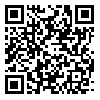Volume 9, Issue 1 (5-2025)
J Social Behav Communit Health 2025, 9(1): 1483-1492 |
Back to browse issues page
Download citation:
BibTeX | RIS | EndNote | Medlars | ProCite | Reference Manager | RefWorks
Send citation to:



BibTeX | RIS | EndNote | Medlars | ProCite | Reference Manager | RefWorks
Send citation to:
Soleymani Mazar A, Gharayagh Zandi H, Ghayour Najafabadi M, Sorbi M H, Yari Geshnigani H. The Effect of Transcranial Direct Current Stimulation on Self-Esteem and Weight: A Pilot Study on Overweight Individuals. J Social Behav Communit Health 2025; 9 (1) :1483-1492
URL: http://sbrh.ssu.ac.ir/article-1-287-en.html
URL: http://sbrh.ssu.ac.ir/article-1-287-en.html
Amirreza Soleymani Mazar1 

 , Hassan Gharayagh Zandi *2
, Hassan Gharayagh Zandi *2 

 , Mahboubeh Ghayour Najafabadi3
, Mahboubeh Ghayour Najafabadi3 

 , Mohammad Hossein Sorbi4
, Mohammad Hossein Sorbi4 

 , Hossein Yari Geshnigani5
, Hossein Yari Geshnigani5 




 , Hassan Gharayagh Zandi *2
, Hassan Gharayagh Zandi *2 

 , Mahboubeh Ghayour Najafabadi3
, Mahboubeh Ghayour Najafabadi3 

 , Mohammad Hossein Sorbi4
, Mohammad Hossein Sorbi4 

 , Hossein Yari Geshnigani5
, Hossein Yari Geshnigani5 


1- Department of Sport Psychology, Faculty of Sport Sciences and Health, University of Tehran, Tehran, Iran
2- Department of Sport Psychology, Faculty of Sport Sciences and Health, University of Tehran, Tehran, Iran ,ghzandi110@ut.ac.ir
3- Department of Motor Behavior, Faculty of Sport Sciences and Health, University of Tehran, Tehran, Iran
4- Department of Psychology, Faculty of Educational Sciences and Psychology, University of Birjand, Birjand, Iran
5- Department of Psychology, Faculty of Psychology and Educational Sciences, Islamic Azad University Marvdasht Branch, Shiraz, Iran
2- Department of Sport Psychology, Faculty of Sport Sciences and Health, University of Tehran, Tehran, Iran ,
3- Department of Motor Behavior, Faculty of Sport Sciences and Health, University of Tehran, Tehran, Iran
4- Department of Psychology, Faculty of Educational Sciences and Psychology, University of Birjand, Birjand, Iran
5- Department of Psychology, Faculty of Psychology and Educational Sciences, Islamic Azad University Marvdasht Branch, Shiraz, Iran
Abstract: (842 Views)
Background: Low self-esteem and overweight are significant factors that can affect mental health and quality of life. Transcranial direct current stimulation (tDCS), as a non-pharmacological method, has the potential to affect physical and psychological health. The present study aimed to investigate the effect of tDCS on self-esteem and weight reduction in overweight individuals.
Methods: This quasi-experimental study was conducted using a pretest-posttest design with a control group. A total of 24 men aged 20 to 40 years from gyms in Mashhad were selected through purposive sampling in 2024 and randomly assigned to experimental and control groups. The study utilized the following tools for data collection: demographic form, Eysenck Self-Esteem Questionnaire, and body mass index (BMI) measurement. Both groups participated in standard physical fitness training; however, the experimental group additionally received anodal tDCS (2 mA, 20 minutes per session, for 10 consecutive sessions). The control group received a sham stimulation protocol. Data were analyzed using one-way ANCOVA in SPSS-21.
Results: The findings indicated a significant difference in self-esteem between the two groups after controlling for the pretest effect (P = 0.004, F = 10.39). The effect size of tDCS on self-esteem was 33%, suggesting a moderate impact. However, the effect of tDCS on BMI was minimal and did not lead to significant weight reduction.
Conclusion: The results suggest that tDCS, in combination with physical exercise, can have a positive impact on self-esteem in overweight individuals, but does not significantly contribute to weight loss. Further research is recommended to explore long-term effects of this intervention.
Methods: This quasi-experimental study was conducted using a pretest-posttest design with a control group. A total of 24 men aged 20 to 40 years from gyms in Mashhad were selected through purposive sampling in 2024 and randomly assigned to experimental and control groups. The study utilized the following tools for data collection: demographic form, Eysenck Self-Esteem Questionnaire, and body mass index (BMI) measurement. Both groups participated in standard physical fitness training; however, the experimental group additionally received anodal tDCS (2 mA, 20 minutes per session, for 10 consecutive sessions). The control group received a sham stimulation protocol. Data were analyzed using one-way ANCOVA in SPSS-21.
Results: The findings indicated a significant difference in self-esteem between the two groups after controlling for the pretest effect (P = 0.004, F = 10.39). The effect size of tDCS on self-esteem was 33%, suggesting a moderate impact. However, the effect of tDCS on BMI was minimal and did not lead to significant weight reduction.
Conclusion: The results suggest that tDCS, in combination with physical exercise, can have a positive impact on self-esteem in overweight individuals, but does not significantly contribute to weight loss. Further research is recommended to explore long-term effects of this intervention.
Keywords: Transcranial Direct Current Stimulation, Self-Esteem, Body Mass Index, Overweight, Physical Fitness Training
Type of Study: Original Article |
Subject:
Psychology
Received: 2024/11/5 | Accepted: 2025/04/15 | Published: 2025/05/18
Received: 2024/11/5 | Accepted: 2025/04/15 | Published: 2025/05/18
Send email to the article author
| Rights and permissions | |
 |
This work is licensed under a Creative Commons Attribution-NonCommercial 4.0 International License. |




